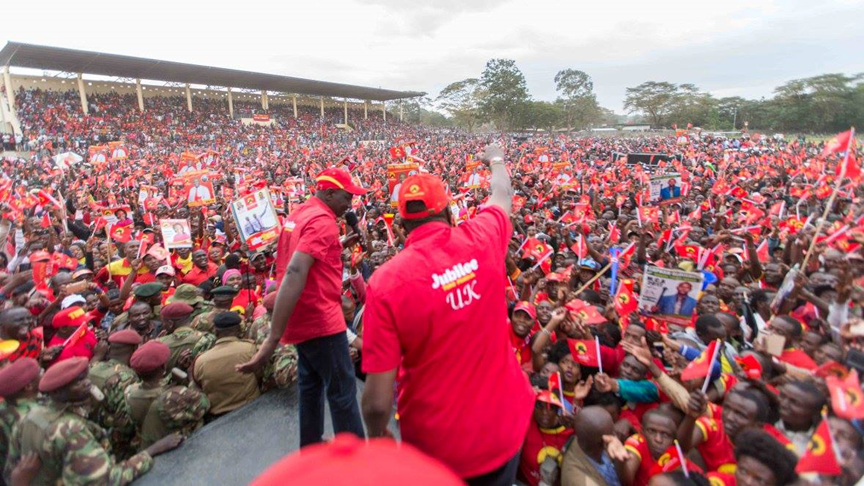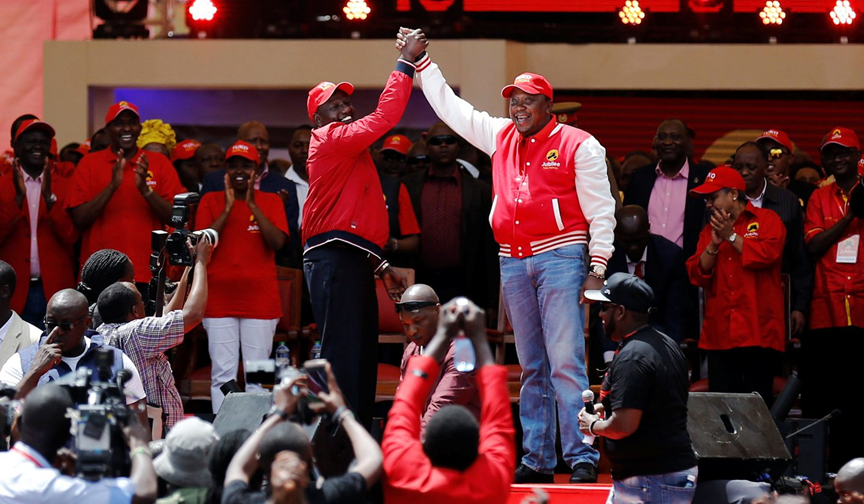

A central claim of democratic theory is that democracy induces governments to be responsive to the preferences of the people. Political parties organize politics in every modern democracy, and some observers claim that parties are what induce democracies to be responsive. Yet, according to others, parties give voice to extremists and reduce the responsiveness of governments to the citizenry. The debate about parties and democracy takes on renewed importance as new democracies around the Africa struggle with issues of representation and governability.
Until Africa works out its own system, political parties are a vital element in the quality of representative democracy, facilitating both the participation of citizens in political life and the accountability of elected representatives to those citizens. As a matter of fact, the restoration of multi-party democracy in Africa since about 1990 has also rendered political parties on the continent crucially important once again. Despite their importance, however, citizens of Africa’s democracies struggle to access information on the parties and candidates in elections. Moreover, many of us know little or nothing about how political parties in Africa work, with evidence restricted to journalistic accounts, or country-specific scholarly accounts.
What We Do

Political parties are crucial for the functioning of representative democracy because multiparty democracy generates different policy options for the electorate. Political parties provide a mechanism through which citizens express diversity of interests and aspirations.
We:
• Support political parties through training in the African Human Rights Systems, gender equality and inclusion, technical assistance toward understanding what the AGA, PAP and other key AU bodies and instruments, are all about. Our Toolkit provides an overview of AU Watch’s work on Political Parties Strengthening and their role in advancing democracy and governance in Africa.
• Conduct research and analysis on political parties showing our views of the impact of parties on democratic responsiveness – what parties are, their objectives and organization. We analyse and critique competing theories of parties, sketch their testable implications, and note the empirical findings that may help adjudicate among these theories. We critique debates about the origins of parties, about the determinants of the party-system, size and characteristics, and about party competition and how all these interplay in a functioning democracy.
• Facilitate cross-party political party dialogue: Many political parties in Africa are on each other’s neck. It doesn’t always have to be so, even though we recognise the great philosophical divide between them. Political parties have an important role to play in nation building, developing communication channels and consultation processes for building consensus. Stimulating greater political cooperation in the competitive arena of national politics is crucial to avoid conflict and regain citizen confidence in a country’s democratic system.
Political Parties in West Africa: ‘Research and Democracy Promotion Project’
Under our ‘Political Participation and Representation Programme’, AU Watch is rolling out, in collaboration with Legacy University in The Gambia, ‘Political Parties in Africa: Research and Democracy Promotion Project’, where we try to improve the quantity and quality of information open to journalists, citizens and scholars in West Africa. The project will contribute to the promotion of democracy through our education, advocacy and communications campaign, especially through use of AU Watch TV and AU Watch Radio, and by developing new online resources, enabling citizens to access more easily information about what the AU is doing to enhance political participation by political parties in AU Member States and the candidates standing for election. The project will contribute to scholarship through the systematic, comparative understanding of the levels and form of organizational development and professionalization of parties.
Objectives:
• Establish an active network of journalists, researchers and analysts across West Africa to better understand the dynamics of political parties in Africa;
• Strengthen empirical political science research capacity in three West African universities, to provide rigorous training on the theory and study of political parties in West Africa;
• Conducting pilot studies of systematic data collection in selected countries in West Africa, including data on central and local level party, rules and practices in party decision-making, manifestos and initiate a peer-reviewed working paper series;
• Holding seminars and workshops on different aspects of political parties, with a primary focus on party structures in Sierra Leone, Senegal, The Gambia, Guinea (Conakry) and Guinea Bissau;
• Working with policy makers and civil society to support democracy promotion efforts.
The project is based at Legacy University, The Gambia. For more information, please write to us.